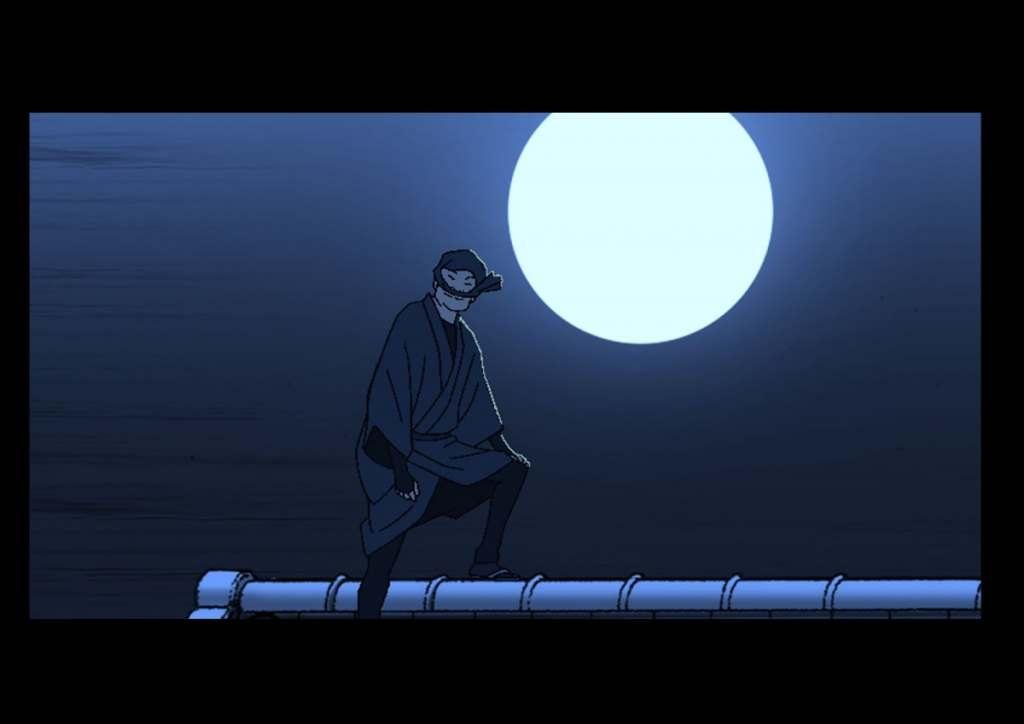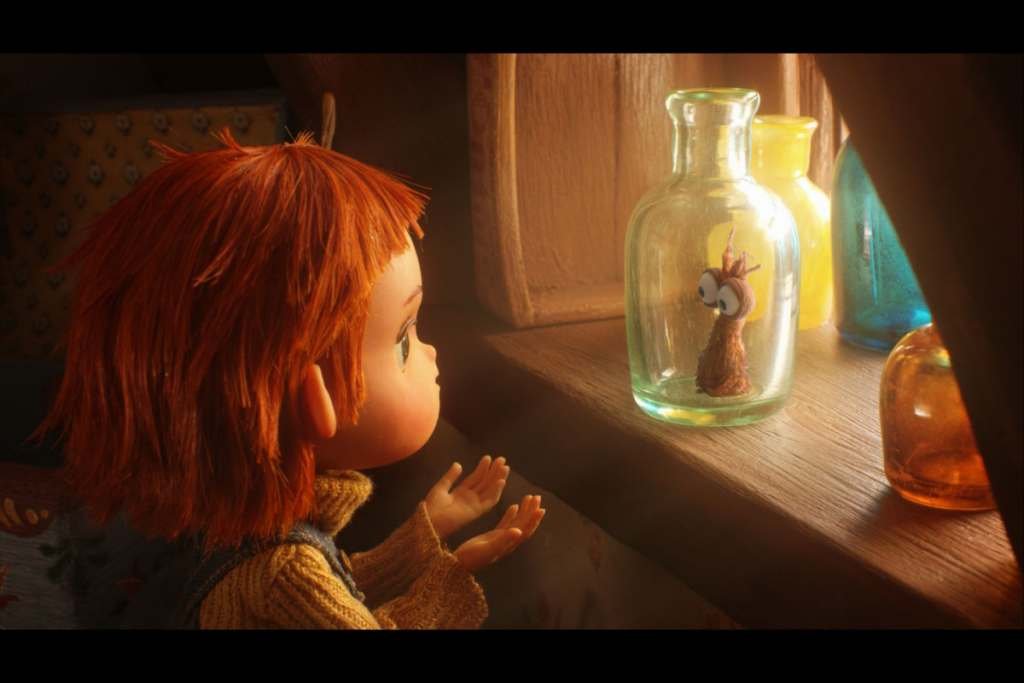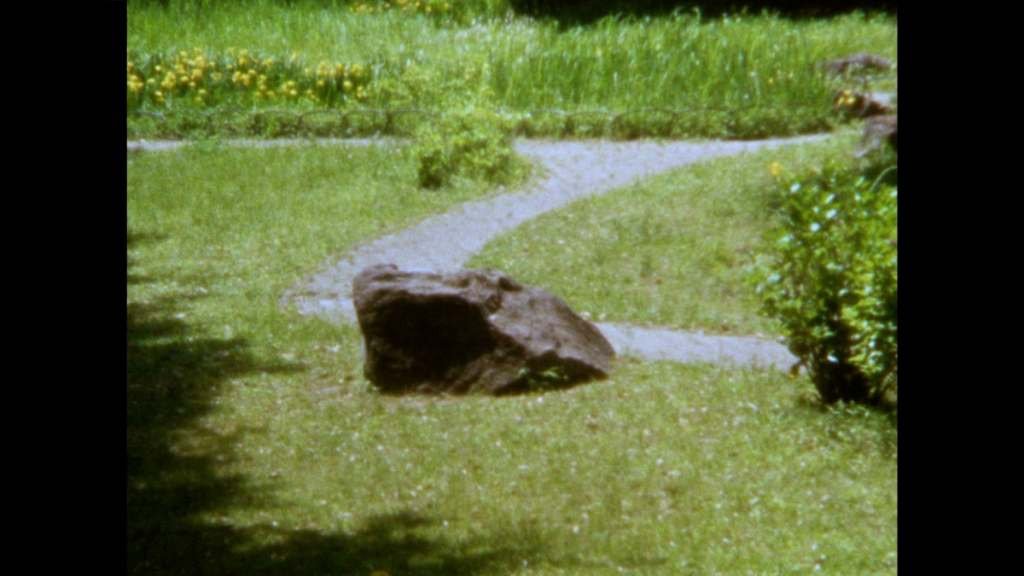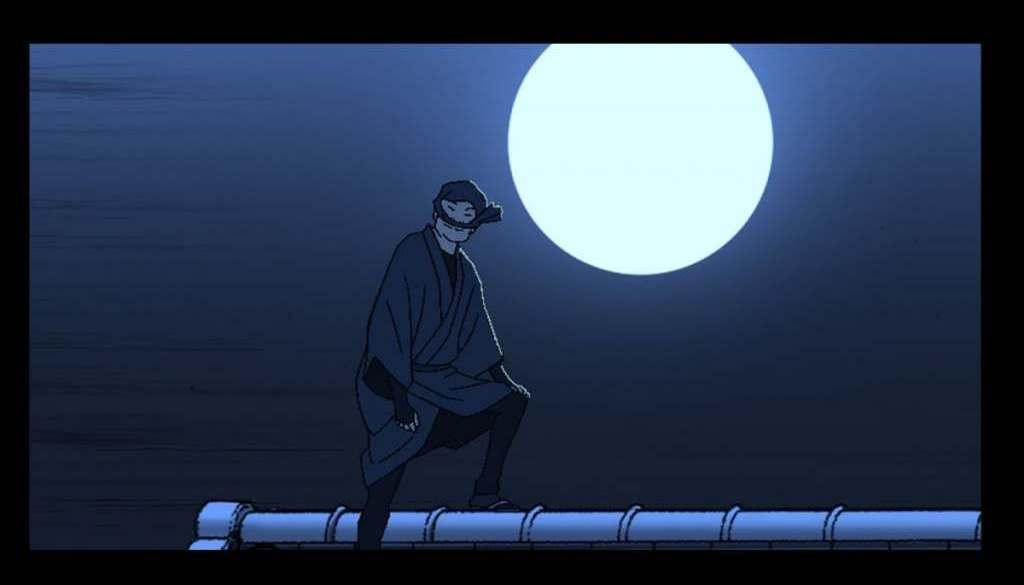Japan Cuts XVII Review: A Roundup Of The Short Cuts Of This Year’s Festivities
There’s a bundle of movies I wanna watch this summer, and the list is only increasing. That certainly goes for the selections I have in mind for covering Japan Cuts next month.
The official line-up is here and I’ll be touting a small curtain raiser later next Monday. To start though, I thought I’d dive into the Short Cuts portion to get warmed up. The works below are pretty inspirational and intriguing, and I’ve shared my reviews and thoughts for each in the descriptions of each still below.

Director Rintaro’s twenty three-minute short is as much of a revelation as it is a celebration of the work to whom it’s attributed. The animated Edo-set folkloric tale of a Japan’s answer to Robin Hood is drenched in blue tint for its night time setting, and scored to a lively and skittish swing track to capture the playful antics of a infamous thief, his goings-on with a childhood friend struggling to care for her child, and relentless yakuza villagers itching to catch the notorious “rat”. The work is based on the pre-existing development of a project by late auteur Sadao Yamanaka whose vision now comes realized thanks to Masao Maruyama and his loyal cinephilic team at Studio M2 and the crews at GENCO and Miyu Productions.

A twelve-minute stop motion-animated adventure chronicling the efforts of a little hairy creature in a bottle to navigate surviving a home environment made precarious by a pesky housecat, while entertaining a young boy left in solitude by his father’s recurring alcoholic addiction. Daisuke “Dice” Tsutsumi directs from a script he wrote with Akihiro Nagisa, crafting a message that’s as poetic and poignant as it is whimsically fun and charming at times.

Eri Saito’s experimental shortfilm feels more like a character study in the first person. Any and all we need to see is caught on the camera through which Saito films, as she drives to a remote wilderness and captures a number of picturesque objects. The rest boils down to a series of subtitles lending an introspective take on a person’s approach to people, friendship, and penchants. The effect feels much more reclusive and cynical as to reveal something intrinsically human and relatable about life and its hardships, and by the end, a certain inevitability that comes with living.

There’s something intensely heartbreaking in the idea realized in director Mayu Nakamura’s ten-minute work, telling the story of a migrant woman from the Philippines who finds cover in the nighttime streets of Tokyo while beholden to a mysterious package. At one point she gets a phone call from her family, only to end up losing the package to another vagabond who she then befriends after he relinquishes her belongings back to her. There’s a brief respite between the two before she heads back on her way, followed by an ending that surely reveals a grim, albeit modest allure of hope amid tragedy. I won’t call it fatalist to be cynical, and I don’t smoke, but if you watch this shortfilm and need to light one up afterwards, I won’t blame you.

A city-wide power outage offsets Kimi Yawata’s twenty-minute Tokyo-set short. Just hours before their divorce proceedings, a beleagured husband and wife (Munetaka Aoki and Asami Usada) are forced to unravel and confront their troubles just as the wife’s battery power runs low. The real question lies in if whether or not the two can salvage their marriage before battery power dies and her cache empties, ridding her of the memories. It’s a story with a set of circumstances that goes both ways in its exploration, taking a very lo-fi approach to its sci-fi foundation to craft a practical romantic drama. I think directors Michael Gondry and Min Byeong-cheon would nod with approval.

Toru Masuyama reportedly used an iPhone and MacBook Pro for this particular animated oddity, casting Saemi Okano in a dialogue-free story that starts off with a woman seemingly traveling on a roadway whilst asleep at the wheel. Following the title opener, the woman wakes up in a mysterious parking area where she finds herself opening doors to different structures that are increasingly intriguing. Even weirder is that the sky is bright in some of these spacious rooms. The structures all have a life of their own in their compelling design, something our wayward protagonist notices in the eight minutes before we see her back in the car, eyes wide open. The car can be seen moving down the road and into a night time sky before the road ends, with the car just gliding away as if to take off into space. Whatever message you choose to interpret from this short, undoubtedly Masuyama’s self-made project is a hypnotic, visual stunner from start to finish.
Native New Yorker. Been writing for a long time now, and I enjoy what I do. Be nice to me!






